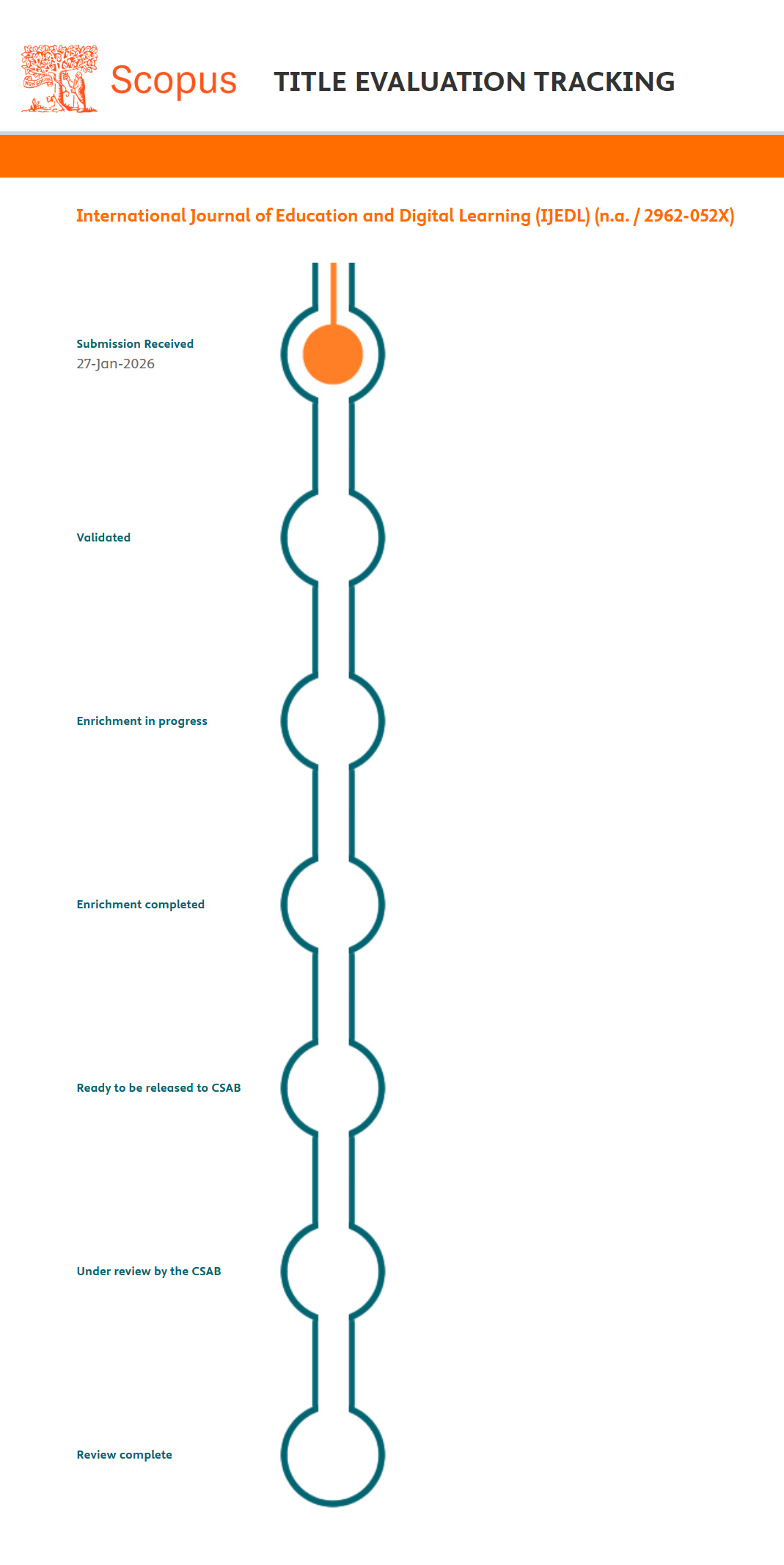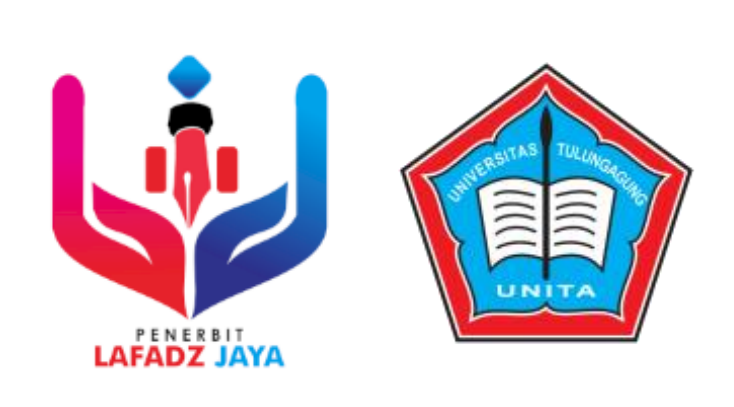Madrasah Library Human Resources Management Based on Training and Development
DOI:
https://doi.org/10.47353/ijedl.v3i3.246Keywords:
Library Human Resource Development, Education and TrainingAbstract
The library is an important component in education that functions as a center for information and knowledge sources for students and teachers. Based on literature reviews and initial survey results at two MANs, it was obtained that the competence of library human resources was not supported by knowledge in the field of library science. The placement of library staff is not in accordance with their educational background; therefore, it is necessary to develop HRD of madrasah libraries through education and training for professional staff. The purpose of the study was to identify, analyze, and describe the development of library human resource management planning, implementation of library human resource management, evaluation of library human resource management, strengths and weaknesses of library human resource management, design of an effective training-based library human resource management model in the future with a pattern of HRD development of madrasah libraries based on education and training at MAN 1 Regency and MAN 2 Bandung City. The method used is a qualitative method that uses qualitative data to describe a phenomenon, event, or condition socially. This method is carried out by means of observation, interviews, studying documents. With a qualitative descriptive method to get a picture in the field, explore or photograph the social situation to be studied comprehensively, broadly, and deeply, understand the phenomenon of what is experienced by the research subjects. The successful data is then analyzed to obtain conclusions. The results of this study indicate that there is; First, planning of library human resource management, Second, implementation of recruitment from internal and external library HR based on needs analysis and selection, Third, evaluation of library human resource management by conducting performance assessments, Fourth, identifying the strengths and weaknesses of madrasah library HR, Fifth, designing madrasah HR development which includes planning, organizing, mobilizing, and supervising, Sixth, making efforts to develop library HR through education and training.
Downloads
References
Arif, M. (2024). Tantangan Dan Peluang Dalam Inovasi Pembelajaran Islam Di Era Digital. Global Education Journal 2, no. 1: 73–80.
Arifin, A. (2024). The Relationship Between Classroom Environment, Teacher Professional Development, and Student Academic Performance in Secondary Education. International Education Trend Issues 2, no. 2: 151–159.
Arifin, B. (2024). Integrasi Penguatan Pendidikan Karakter Dalam Pembelajaran Berbasis Literasi Digital Pada Peserta Didik Sekolah Dasar. Innovative: Journal Of Social Science Research, 4(3), 13547–13555.
Arifudin, O. (2021). Manajemen Pembiayaan Pendidikan. Bandung : Widina Bhakti Persada.
Arifudin, O. (2024). Research Trends Education Management In Indonesia. Journal of Education Global, 1(2), 165–173.
Arifudin, O. (2025). Application Of Steam Learning Methods To Increase Student Creativity And Innovation. International Journal of Teaching and Learning (INJOTEL), 3(1), 97–108.
As-Shidqi, M. H. (2025). Menggali Potensi Transformasi Islam Dan Perencanaan Pendidikan. JUMADIL: Jurnal Manajemen Pendidikan Islam, 1(1), 1–15.
Azaz. (2018). Pengelolaan Perpustakaan Berbasis Akreditasi. Makassar: Leisyah.
Azmar, N. J. (2018). Masa depan perpustakaan seiring perkembangan revolusi industri 4.0: Mengevaluasi peranan pustakawan. IQRA: Jurnal Ilmu. 1 (1), 1-11.
Budiarti. (2018). Manajemen Sumber Daya Manusia Berbasis Global. Yogyakarta: Pustaka Fahima.
Djafri, N. (2024). Development Of Teacher Professionalism In General Education: Current Trends And Future Directions. International Journal of Teaching and Learning 2, no. 3 : 745–758.
Fardiansyah, H. (2022). Manajemen Pendidikan (Tinjaun Pada Pendidikan Formal). Bandung: Widina Media Utama.
Farid, M. (2025). Mekanisme Pengambilan Keputusan Berbasis Sistem Informasi Manajemen Dalam Lembaga Pendidikan Islam. Jurnal Tahsinia, 6(1), 86–103.
Febrianty, F. (2020). Kepemimpinan & Prilaku Organisasi Konsep Dan Perkembangan. Bandung: Widina Bhakti Persada.
Fitria, N. (2023). Manajemen Pengelolaan Media Pembelajaran Pendidikan Islam. Edukasi Islami: Jurnal Pendidikan Islam 12, no. 03: 2239–2252.
Gomez-Mejia. (2001). Managing Human Resources, International Edition. New Jersey: Prentice Hall, Inc.
Hanafiah, H. (2022). Upaya Meningkatkan Kompetensi Profesional Guru melalui Supervisi Klinis Kepala Sekolah. JIIP-Jurnal Ilmiah Ilmu Pendidikan, 5(10), 4524–4529. https://doi.org/https://doi.org/10.54371/jiip.v5i10.1049
Hoerudin, C. W. (2023). E-Learning as A Learning Media Innovation Islamic Education. QALAMUNA: Jurnal Pendidikan, Sosial, Dan Agama 15, no. 1: 579–594.
Ibrahim. (2016). Manajemen dan Administrasi perpustakaan. Makasar: Syahadah.
Judijanto, L. (2025). Ethics And Security In Artificial Intelligence And Machine Learning: Current Perspectives In Computing. International Journal of Society Reviews (INJOSER), 3(2), 374–380.
Kartika, I. (2021). Upaya Meningkatkan Mutu Pembelajaran Pendidikan Agama Islam Dengan Model Berbasis Aktivitas Terhadap Motivasi Belajar Siswa. Jurnal Al-Amar: Ekonomi Syariah, Perbankan Syariah, Agama Islam, Manajemen dan Pendidikan, 2(1), 36–46.
Kartika, I. (2020). Peran Guru Dalam Proses Pengembangan Kurikulum Pendidikan Agama Islam Di Sekolah Menengah Atas. Jurnal Al-Amar, 1(1), 31–39.
Kartika, I. (2023). Upaya Guru Dalam Meningkatkan Mutu Pembelajaran Pendidikan Agama Islam Di Sekolah Dasar. Jurnal Al-Amar, 4(2), 147–160.
Kartika, I. (2024). Strategi Guru Pendidikan Agama Islam (Pai) Dalam Mengatasi Kesulitan Belajar Siswa Di Sekolah Dasar. Jurnal Al-Amar, 5(2), 171–187.
Komarudin. (2012). Rencana Strategis Perpustakaan Sekolah: Pendekatan Praktis. Pustakaloka. 4 (1), 1-11.
Krismiyati. (2017). Pengembangan Sumber Daya Manusia dalam Meningkatkan Kualitas Pendidikan di SD Negeri Inpres Angkasa Biak. Jurnal Officer. 3(1), 44-54.
Kristiawan, M. (2016). Telaah Revolusi Mental dan Pendidikan Karakter dalam Pembentukan Sumber Daya Manusia Indonesia Yang Pandai dan Berakhlak Mulia. Ta’dib. 18 (1), 13–25.
Kusmawan, A. (2025). The Relationship Between Teacher Involvement in Curriculum Development and Student Learning Outcomes. International Journal of Educatio Elementaria and Psychologia, 2(1), 1–12.
Lahiya, A. (2025). Education Administration Reform: A Case Study On The Implementation Of The Merdeka Curriculum. INJOSEDU: International Journal of Social and Education, 2(2), 29–37.
Marantika, N. (2020). Manajemen Humas Sekolah. Bandung: Widina Bhakti Persada.
Ningsih, I. Wahyu. (2024). Manajemen Pembelajaran Pendidikan Agama Islam Dalam Meningkatkan Prestasi Belajar Peserta Didik Di Sekolah Dasar. Jurnal Tahsinia 5, no. 1: 23–37.
Noe, et al. (2003). Human Resource Management, International Edition. New York: The McGraw-hill Companies, Inc.
Nuary, M. G. (2024). Teacher Strategies In Instilling Nationalist Values In The Millennial Generation In The Technological Era. International Journal of Teaching and Learning 2, no. 4: 954–966.
Paturochman, I. R. (2024). Pluralism And Multiculturalizm Education. International Journal Of Society Reviews 2, no. 3: 564–573.
Ramli, A. (2024). Analysis of the Influence of Organizational Commitment on Work Discipline of Public High School Teachers. Journal on Education 6, no. 2: 12927–12934.
Rifky, S. (2024). Professionalism Of Educators In Learning Development. International Journal of Teaching and Learning 2, no. 2: 579–588.
Rohimah, R. B. (2024). Madrasah’s Contribution To The Empowerment Of The Village Community In Indonesia. International Journal of Teaching and Learning 2, no. 4: 1088–1101.
Society for Human Resource Managemen (SHRM). (2002). SHRM Learning System. Module 1: Strategic Management. Alexandria, VA: SHRM.
Sanulita, H. (2024). Analysis Of The Effectiveness Of Audio Visual Learning Media Based On Macromedia Flash Usage On School Program Of Increasing Student Learning Motivation. Journal on Education 6, no. 2 : 12641–12650.
Sappaile, B. I. (2024). The Role of Artificial Intelligence in the Development of Digital Era Educational Progress. Journal of Artificial Intelligence and Development 3, no. 1: 1–8.
Sembiring, I. M. (2024). Pendidikan Agama Islam Berwawasan Global Sebagai Dasar Paradigma Dan Solusi Dalam Menghadapi Era Society 5. Innovative: Journal Of Social Science Research 4, no. 2: 305–314.
Suherman. (2009) Perpustakaan sebagai Jantung Sekolah Referensi Pengelolaan Perpustakaan Sekolah, Bandung: MQS Publishing.
Suwanto. (2016). Manajemen SDM dalam Organisasi Publik dan Bisnis. Bandung: Alfabeta.
Ulimaz, A. (2024). Analisis Dampak Kolaborasi Pemanfaatan Artificial Intelligences (AI) Dan Kecerdasan Manusia Terhadap Dunia Pendidikan Di Indonesia. Innovative: Journal Of Social Science Research, 4(3), 9312–9319.
Zulkifli. (2016). Manajemen Sistem Informasi. Cet ke-4. Jakarta: Gramedia.
Downloads
Published
How to Cite
Issue
Section
License
Copyright (c) 2025 Ahmad Husni Hamim, Jaja Jahari, Qiqi Yuliati Zakiyah, Opik Taupik Kurahman, Mohamad Jaenudin

This work is licensed under a Creative Commons Attribution-ShareAlike 4.0 International License.












